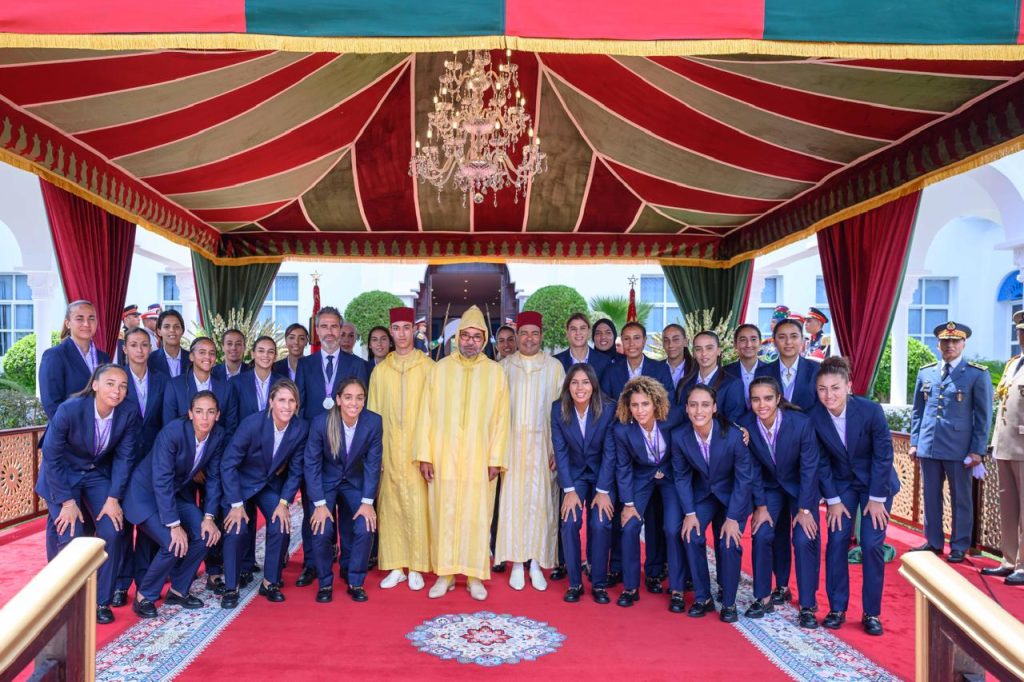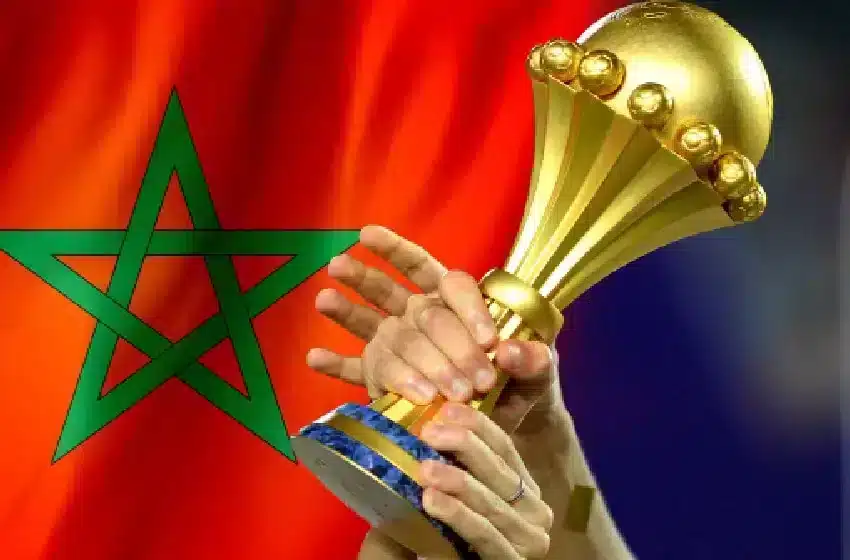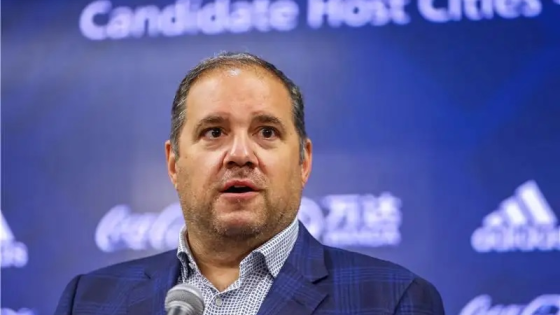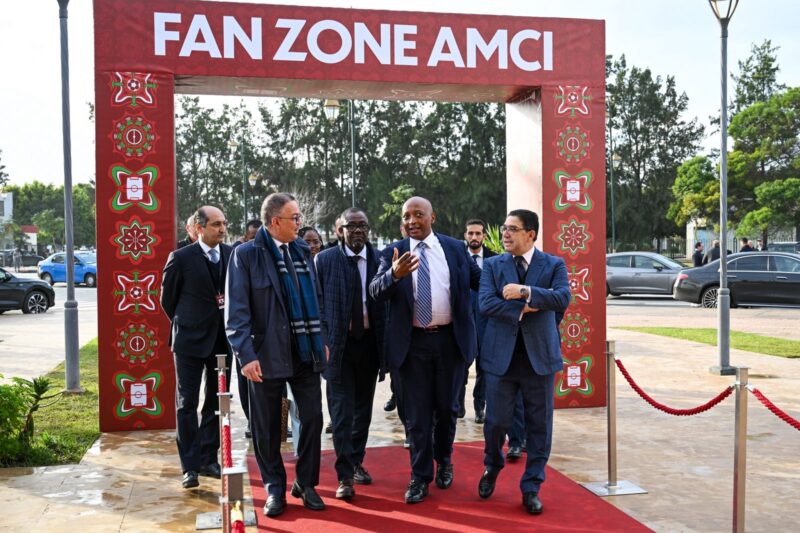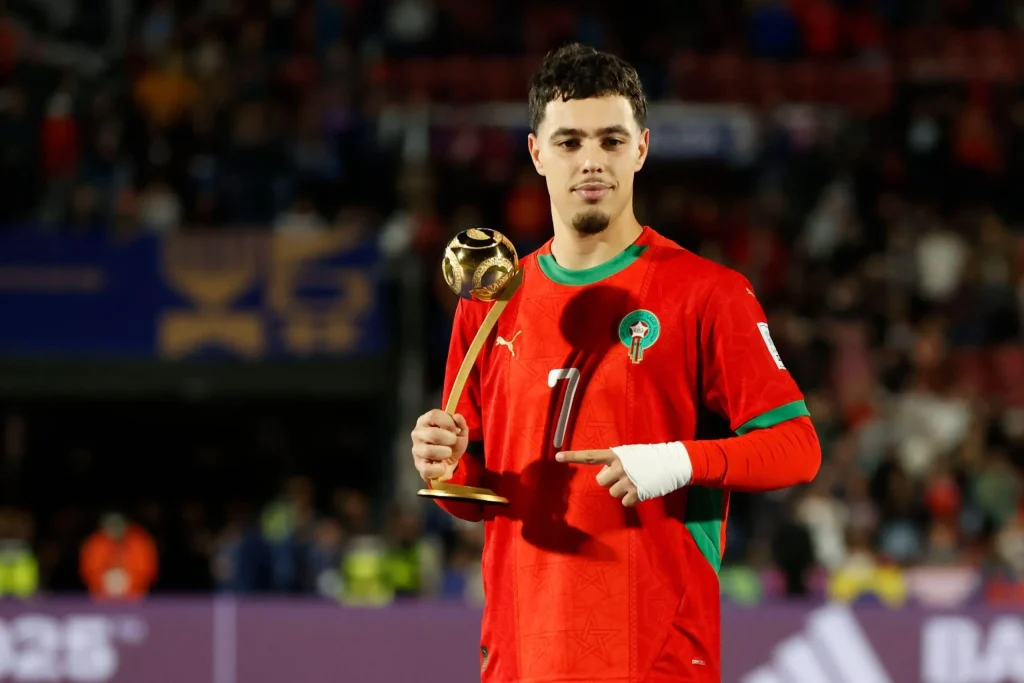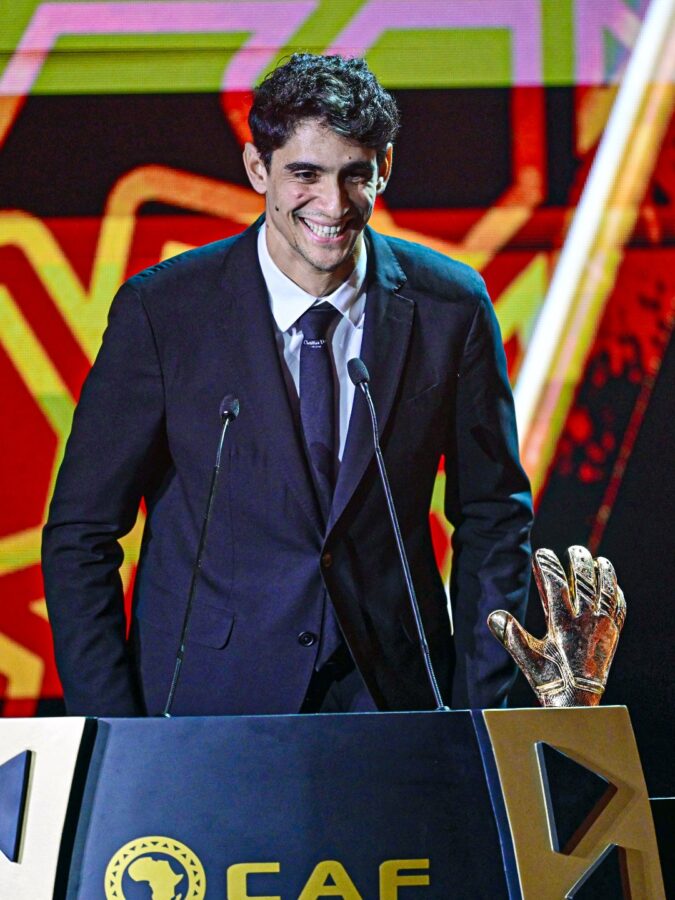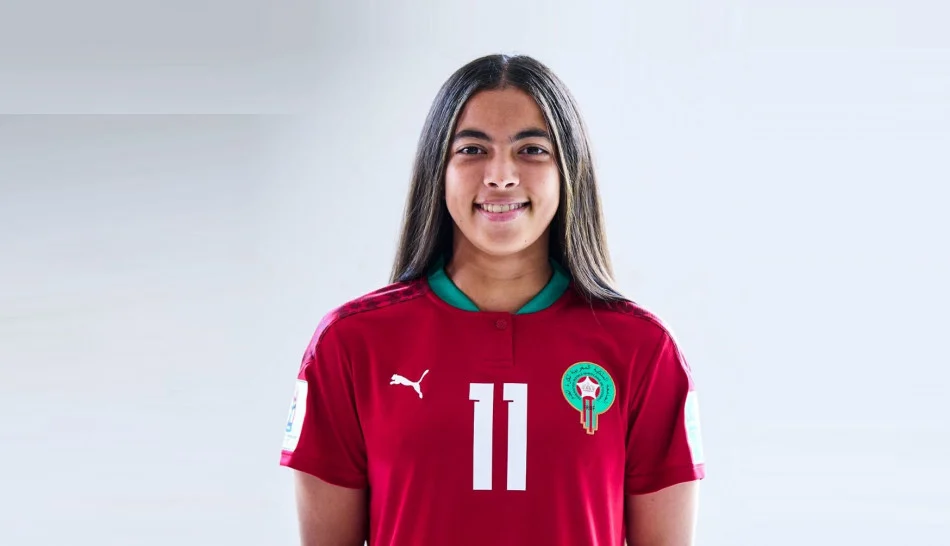The presence of the women’s national football team, finalists in the 2024 Africa Women’s Cup of Nations, at the reception hosted on Wednesday by His Majesty King Mohammed VI on the occasion of the glorious Throne Day celebrations, is yet another illustration of the Sovereign’s unfailing benevolence towards sport in general and football in particular.
In fact, His Majesty the King has consistently supported Moroccan athletes by providing them with all the conditions necessary to encourage them to achieve the best results and fly the national flag high at the continental, regional, and international levels.
Speaking to the press, on the occasion of the Throne Day reception offered by HM the King, the Atlas Lionesses said that they were proud to be received by the Sovereign, adding that it is a great honor and a source of motivation to persevere in the same path in order to meet the aspirations of His Majesty the King and the Moroccan people.
This Royal gesture of goodwill is a “source of motivation to continue working for the next African Cup of Nations,” emphasized the Atlas Lionesses captain, Ghizlane Chebbak, top scorer of the continental competition.
In this respect, she reiterated, on behalf of the entire national team, their commitment to do their best to meet the expectations of the Moroccan people.
For her part, Khadija Errmichi, the team’s goalkeeper, said that “on this occasion dear to our hearts and to the hearts of all Moroccans, the glorious Throne Day, we express our heartfelt thanks and deep gratitude to HM the King,” emphasizing that the Sovereign’s High Solicitude and Goodwill remain “unforgettable moments” forever engraved in the memory of the members of the national team.
“We will redouble our efforts to fly the national flag high and always present the best image of national women’s football,” she said.
For Sanae Messaoudi, this royal gesture is “a source of pride for all of us.” “We hope to bring happiness to the Moroccans who support us and have always supported us,” she said.
“We ask the Moroccan public to continue to support us and we promise to do our best to achieve this ambition” of winning the continental title, she said.
“It’s a dream for us. We are very happy to be received by His Majesty the King,” said Yasmine Katie Mrabet, defender for the women’s national team.
The Moroccan international expressed the national team’s great pride in their brilliant performance during the Africa Women’s Cup of Nations. “We will learn from our mistakes and work to improve,” she said.
For his part, the national women’s football team head coach, Jorge Vilda, said that he was honored to be received, along with the members of the national team, by His Majesty King Mohammed VI. “It’s an unforgettable day. The national team players are very happy,“ he said, adding that ”this noble royal gesture is a recognition of the work done.”
After their brilliant performance at the last Women’s AFCON in 2024, which the Kingdom hosted, His Majesty the King sent a message of congratulations to the members of the women’s national team, in which He praised “the outstanding competitive spirit and the high sense of patriotism” shown by the members of the national team throughout the championship.
HM the King also praised their firm determination to establish the strong presence of Moroccan football at the continental and international levels and to represent, as they should, national women’s sport, as well as the efforts of the players and the technical, medical, and administrative staff to fulfill the expectations of Moroccan fans who aspire to more titles.
